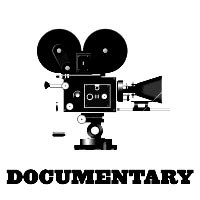 |
Part 2 |
Famous Documentary Film-makers: Errol Morris -
Barbara Kopple - Director Barbara Kopple's Harlan County, USA (1976), another Academy Award winner for Best Documentary, documented a Kentucky coal miners' strike in the early 1970s against the Eastover Mining Company. She also directed a second Oscar-winning documentary film on labor struggles, American Dream (1990), about striking employees at a Hormel meat-packing plant in Austin, Minnesota. In addition, she filmed an in-depth documentary on comedian/musician/director Woody Allen and his 1996 jazz band tour of Europe, titled Wild Man Blues (1997). Michael Moore - Iconoclastic, sardonic, independent film-maker/journalist Michael Moore has had varied success with his personally-made films about the excesses and abuses of corporate America, social issues and politics, including The Big One (1997) filmed during a 1996 promo tour for his own first book Downsize This!, and the darkly humorous Roger & Me (1989) - Moore's first documentary, and the most successful documentary film up to its time in film history (Moore broke his own record 15 years later). With scathing commentary, it examined the devastating effects of the 1986 closing of auto factory plants in Flint, Michigan (Moore's hometown) by GM's unavailable former CEO Roger Smith.
Moore's film set box-office records as the highest-grossing non-concert, non-IMAX documentary film of all time - and at the time was the only documentary ever to win a box-office weekend during its debut showing. It established a significant precedent for a political documentary by being the first ever documentary to cross the $100 million mark in the US (eventually earning $119 million). However, the film's diatribe against President George W. Bush wasn't able to prevent his re-election in 2004. His next film was the searing look at the American health care system, Sicko (2007). The liberal activist's next few films included Capitalism: A Love Story (2009) - basically a searing indictment of capitalism following the financial crisis of the late 2000s and the subsequent debt-ridden economy, Where to Invade Next (2015) - composed of interviews conducted in various European countries about quality of life, the one-man show about the 2016 Presidential election and his support of Hillary Clinton in Michael Moore in TrumpLand (2016), and Fahrenheit 11/9 (2018) - referencing his previous film and the date of the announcement of the 2016 election's results. Stacy Peralta - Life and culture in Southern California were the subject matter of documentary films produced by youth-oriented TV producer and skateboarding icon Stacy Peralta: Dogtown and Z-Boys (2002) surveyed the growth of skateboarding since the late 1960s by following a group of skaters off Venice Beach and their subculture, and Riding Giants (2004) was an engaging and exciting film about the evolution of the big-wave surf culture as seen through the experiences of legendary, thrill-seeking surfers. It credited blonde pre-teen star Sandra Dee and her Gidget (1959) film with the explosion of surf culture in the early 1960s. The Prelinger Films Archives - Prelinger Archives, founded in 1983 by Rick Prelinger would grow over the next twenty years into a collection of over 48,000 "ephemeral" (advertising, educational, industrial, and amateur) films. Included were films produced by and for many hundreds of important US corporations, non-profit organizations, trade associations, community and interest groups, and educational institutions. Some of the films were outrageous and sometimes bizarre examples of 40's and 50's US propaganda that were aimed at influencing the public. They ranged from social guidance films like Are You Popular? (1947) (which warned that only 'bad' girls park with boys in cars at night) and 'mental hygiene' films on how to engender family courtesy and etiquette like A Date with Your Family (1950). Other subjects were Cold War films like the cartoon Meet King Joe (1949) produced to convince American workers of their good fortune, and Why Play Leap Frog? (1949) that also attempted to convince workers to increase their productivity. Others were Don't Be a Sucker (1947) and Make Mine Freedom (1948) which warned against the dangers of Communism, and Brink of Disaster (1972), a Nixon-era film decrying the evils of 60's activism, and how it threatened American moral, religious and ethical principles. Biographical Documentary Films: The Oscar-winning documentary by Richard Kaplan, The Eleanor Roosevelt Story (1965), was a tribute to one of the most influential First Ladies in US history. Bruce Weber's Let's Get Lost (1988) was a biographical account of the life of jazz trumpeter Chet Baker. Marcel Ophuls' riveting Hotel Terminus: The Life and Times of Klaus Barbie (1988), with an extensive examination of the exploits of the infamous Nazi 'Butcher of Lyon,' won the Best Documentary Feature Oscar in its year of competition.
Two rock music documentaries concentrated on folksinger/songwriter Bob Dylan: D.A. Pennebaker's Don't Look Back (1967) followed a young Bob Dylan on his 1965 tour of England. And then Martin Scorsese's epic documentary No Direction Home (2005) was a 3-and-a-half hour portrait of the first six years of Dylan's career. |